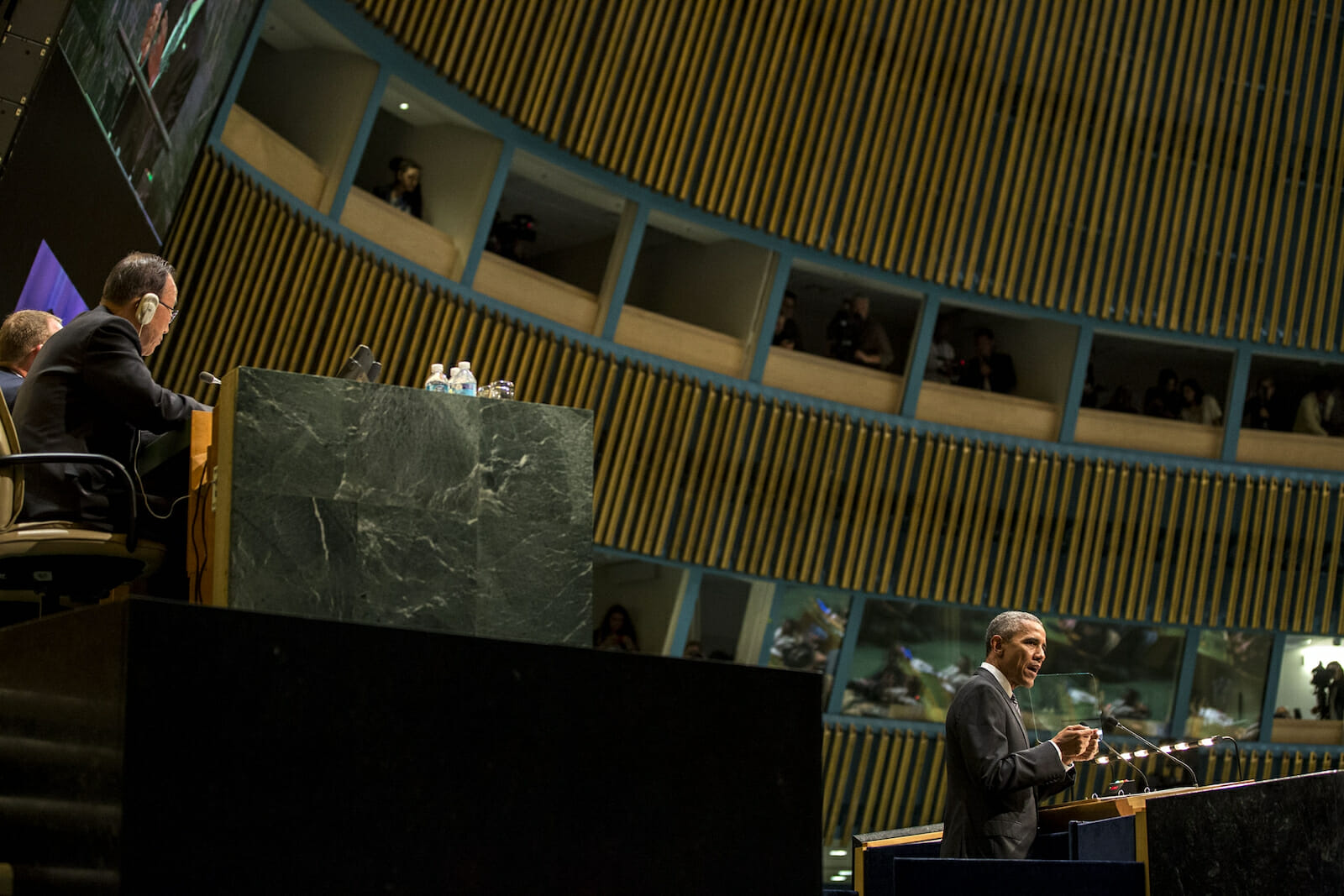
A Day to Celebrate and Reflect on UN Accomplishments
When October 24th is mentioned in the halls of the United Nations, thoughts immediately gravitate towards the meaning of the UN; for this day represents UN Day – a day to consider the founding of the world body in 1945.
Seventy-four years since its founding the work of the UN remains as vital today as it did in the aftermath of World War II. People of the world rely upon the loyal and dedicated team that provide critical resources and care for those in need.
From providing food assistance to 80 million people in 80 countries, to furnishing vaccines to 45% of the world’s children saving 3 million lives, to fighting extreme poverty which assists more than 1 billion people, to protecting and promoting human rights through the passage of 80 treaties and declarations, through its coordination of humanitarian aid to 93.5 million people totaling approximately $22.5 billion, to conflict prevention through the use of diplomacy assisting roughly 67 countries with elections, and supporting maternal health helping 1 million women minimize pregnancy risks, the global body’s work continues to assist those in need around the world.
On this day it is important to remember that the UN is facing a cash crisis because of late payment of dues. Most notably, in 2019 the U.S. owes $600 million equating to 22% of the UN budget. As the largest contributor, the administration’s failure to pay is a significant reason for the UN’s financial issues. It is imperative that pressure is placed upon the U.S. to fund its share of the UN budget.
This year’s UN Day theme is: “Our Planet. Our Future.” The UN continues its campaign to heighten awareness to the devastating consequences being thrust upon our planet through man’s inability to heed the warning signs, especially as it pertains to climate change. The theme ties into Sustainable Development Goal (SDG) #13 – Climate Action.
Writing in The Guardian, UN Secretary-General António Guterres called on everyone to take action to lessen the devastating effects of climate change. He has characterized it as the “defining issue of our time” requiring peoples of the world to mobilize in pushing back against the significant threat it poses to all of us, especially for the youth of our world.
The secretary-general further writes that “Global emissions are increasing. Temperatures are rising. The consequences for oceans, forests, weather patterns, biodiversity, food production, water, jobs and, ultimately, lives are already dire – set to get much worse.” Many are experiencing the effects of climate change already. It is occurring in areas of the world that can least afford it.
Moreover, 70 nations have heeded the call to action by committing to “net zero carbon emissions by 2050.” Further, 100 cities have also made the commitment, Guterres wrote. Finally, he laid out what is required if we are to minimize climate change. He states that a “cut of greenhouse emissions by 45% by 2030; reach carbon neutrality by 2050, and limit temperature rise to 1.5C by the end of the century.”
What underlies this problem is the lack of leadership and commitment by the largest emitters of carbon. The absence of U.S. leadership on this issue is quite palpable, particularly its withdrawal from the Paris Agreement. The UN climate action summit in September saw many demanding greater actions on climate change from global policymakers led by 16-year old Swedish activist Greta Thunberg.
Her courage and inspiration on this issue is remarkable. It is encouraging to see many of our youth motivated to move against climate change. The U.S. president could learn a lot from our youth.
The fight against climate change requires that the world’s 1.8 billion youth “have a say in the future of the planet.” Together we need to take ownership of this issue. We cannot fail on this matter, for if we do, we have failed our youth.

